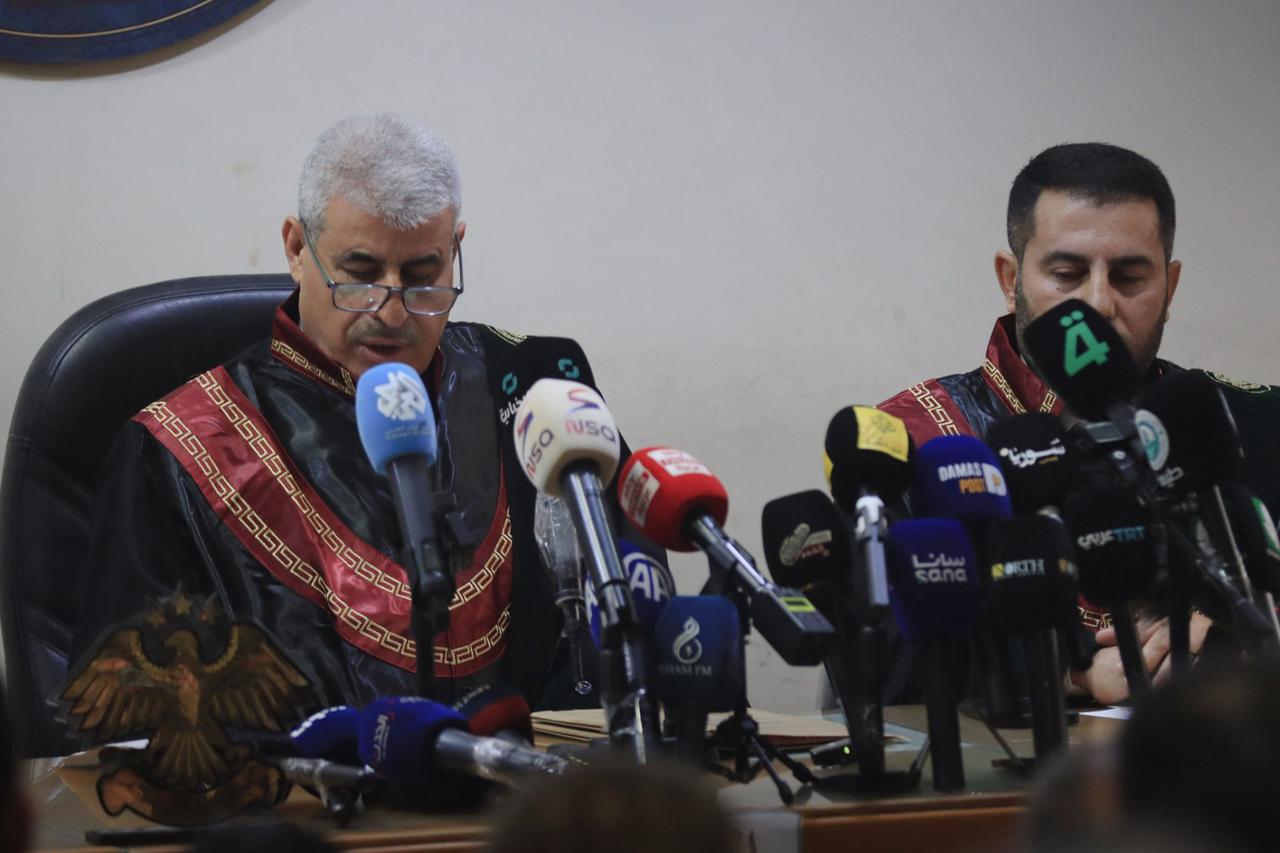
Public trials for individuals accused of committing violations during the March 6 Sahel events in Syria opened Tuesday at the Palace of Justice in Aleppo, in the presence of victims’ families, according to SANA.
In the trial, 14 defendants face charges ranging from sectarian incitement to murder, amid heavy media and security presence.
The first part of the session involved the trial of seven detainees on charges of inciting sectarian strife, theft, and assaulting members of the Internal Security Forces and the Syrian Arab Army.
The second part addressed the trial of seven individuals accused of committing crimes of theft and murder.
The move reflects Syria’s drive to establish justice and transparency, strengthen judicial credibility, deter crimes, and uphold the rights of defendants through fair trials.
Judge Jumaa al-Anzi, head of the National Committee for Investigation and Fact-Finding into the Sahel events, said in a post on X that these trials mark a pivotal moment in the country’s history.
He added that they reflect an image of Syria that is laying the foundations of justice and transparency, strengthening confidence in the judicial system, and serving as a deterrent to criminals while at the same time safeguarding the rights of the accused and ensuring fair trials.
“We are aware of the magnitude and complexity of the case and of the level of precision and scrutiny required in legal attribution, charges, prosecution, arrests, and all related details,” he added.
He said this demonstrates to Syrians first and then to the international community that “we are living in a new Syria that upholds justice and enforces the rule of law.”
The National Committee for Investigation and Fact-Finding into the Sahel events reported on July 22 that remnants of the former regime carried out large-scale attacks on March 6, using heavy, medium, and light weapons to target army and public security headquarters, checkpoints, and patrols, while also blocking major roads.
The assaults resulted in the killing of 238 security and army personnel in the provinces of Latakia, Tartous, and Hama.
According to the committee, testimonies from victims’ families, local residents, government employees, detainee interrogations, and the examination of digital evidence led to the identification of 265 potential suspects affiliated with armed groups linked to the Assad regime—commonly referred to as “remnants.”
The suspects are implicated in serious crimes, including armed robbery, torture, murder, mutilation of bodies, sectarian incitement, and attempts to detach parts of Syrian territory from state sovereignty.
The committee also verified, through family testimonies, site inspections, and cross-checking with government records, forensic medicine, the Red Crescent, and the Syrian Civil Defense, the names of 1,426 people killed, including 90 women, most of them civilians, along with former military personnel who had previously reached settlements with the authorities.
The presidency announced on March 9 the formation of an independent national committee to investigate and establish facts regarding the events in Syria’s coastal region, with instructions to submit its report to the Presidency within 30 days.
President Ahmad al-Sharaa issued on April 10 a decision extending the committee’s mandate for an additional three months, nonrenewable.